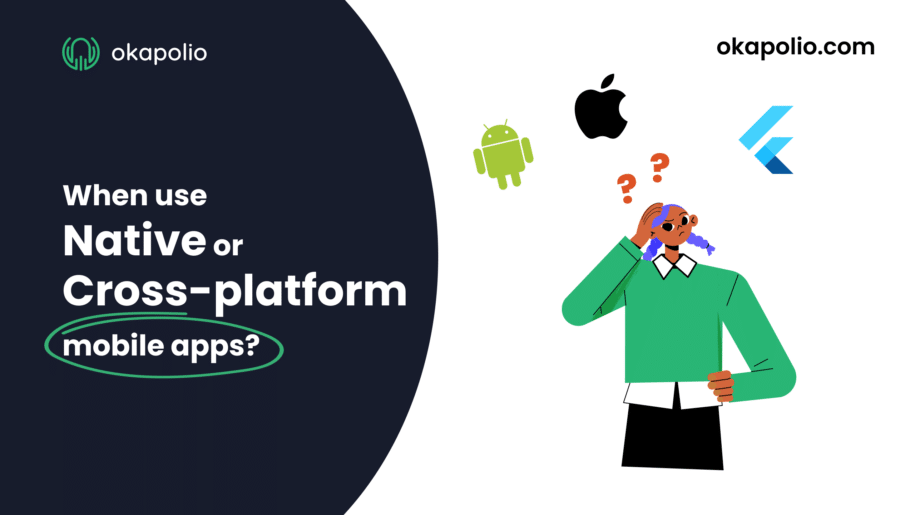When it comes to developing a mobile app for your business or organization, one of the most important decisions you will have to make is whether to develop a native or cross-platform app. Understanding the differences between native and cross-platform apps, as well as their respective benefits and drawbacks, is crucial to making the right choice for your specific needs.
Native Mobile Apps
Native mobile apps are apps that are specifically designed and developed for a particular operating system, such as iOS or Android. These apps are built using the platform’s native programming language, such as Swift or Java, and have access to the device’s hardware and software features. Some of the benefits of native apps include:
- Performance: Native apps are designed to take full advantage of the specific features and capabilities of the device they are built for, resulting in high performance and fast load times. This is because native apps are optimized for the specific operating system they are built for.
- User Experience: Native apps provide a seamless and intuitive user experience, as they are designed to fit the look and feel of the operating system and device. This can help to increase engagement and improve user satisfaction.
- Access to Device Features: Native apps have full access to the device’s hardware and software features, such as the camera, GPS, and accelerometer, which can enhance the app’s functionality and user experience.
- Security: Native apps are generally considered to be more secure than cross-platform apps, as they are subject to the security measures and protocols of the platform they are built for.
Cross-Platform Mobile Apps
Cross-platform mobile apps, also known as hybrid apps, are apps that are designed to run on multiple platforms, including iOS, Android, and Windows. These apps are built using cross-platform development tools, such as React Native or Flutter, and are designed to run on multiple platforms with a single codebase. Some of the benefits of cross-platform apps include:
- Cost Efficiency: Cross-platform apps are often more cost-effective than native apps, as they can be developed using a single codebase and deployed to multiple platforms, reducing the need for separate development teams and resources.
- Time Efficiency: Cross-platform apps can typically be developed and deployed more quickly than native apps, as they do not require separate development efforts for each platform.
- Consistency: Cross-platform apps provide a consistent user experience across multiple platforms, as they are designed to run on multiple platforms with a single codebase.
- Reusable Code: Cross-platform apps allow for the reuse of code, which can reduce development time and increase efficiency.
When to Use Native Apps
- High Performance: If performance is a top priority for your app, then a native app is the way to go. Native apps are optimized for the specific platform they are built for and provide fast load times and smooth performance.
- Access to Device Features: If your app requires access to specific device features, such as the camera or GPS, then a native app is the best choice. Native apps have full access to the device’s hardware and software features, which can enhance the app’s functionality and user experience.
- Intuitive User Experience: If you want to provide a seamless and intuitive user experience, then a native app is the way to go. Native apps are designed to fit the look and feel of the operating system and device, which can help to increase engagement and improve user satisfaction.
- Security: If security is a top concern for your app, then a native app is the best choice. Native apps are generally considered to be more secure than cross-platform apps
Conclusion
The decision to develop a native or cross-platform mobile app for your business depends on your specific needs and priorities. Native apps offer high performance, access to device features, and an intuitive user experience, but can be more costly and time-consuming to develop. Cross-platform apps offer cost and time efficiency, consistency, and reusable code, but may not provide the same level of performance or access to device features. Understanding the benefits and drawbacks of each approach can help you make an informed decision that best suits your business goals and budget.
